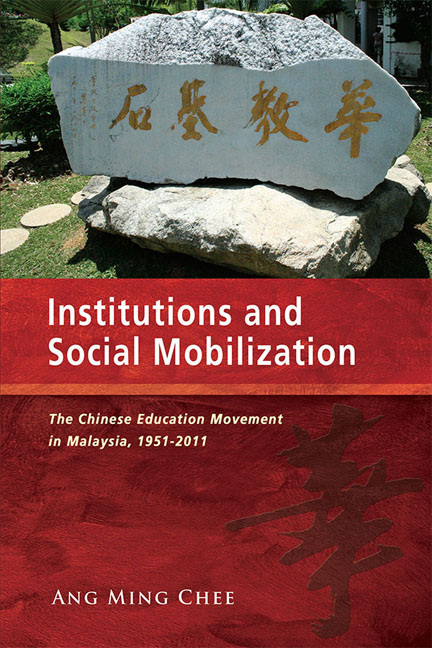Book contents
- Frontmatter
- Dedication
- Contents
- List of Tables, Figures, and Maps
- Acknowledgements
- Abbreviation
- 1 Institutions and Social Mobilization
- 2 Nation Building and Formation of Social Movement
- 3 Challenges and Adaptations
- 4 Leaders, Alliances, and Politics
- 5 Mobilization Machinery
- 6 Social Mobilization in Non-Liberal Democracies
- Appendices
- Bibliography
- Glossary of Non-English Text
- Index
- About the Author
6 - Social Mobilization in Non-Liberal Democracies
Published online by Cambridge University Press: 19 May 2017
- Frontmatter
- Dedication
- Contents
- List of Tables, Figures, and Maps
- Acknowledgements
- Abbreviation
- 1 Institutions and Social Mobilization
- 2 Nation Building and Formation of Social Movement
- 3 Challenges and Adaptations
- 4 Leaders, Alliances, and Politics
- 5 Mobilization Machinery
- 6 Social Mobilization in Non-Liberal Democracies
- Appendices
- Bibliography
- Glossary of Non-English Text
- Index
- About the Author
Summary
INTRODUCTION
This study has identified two institutions, namely, structural and relational institutions, that have been crucial to the mobilization capacity and persistency of the Chinese education movement in Malaysia. As democratic institutions within non-liberal democracies are often constrained and easily manipulated by the ruling regime, social movements in these states rely instead on relational institutions to channel their needs and demands for change. The flexibility of relational institutions based on informal interpersonal networks compliment the rigidity of their structured counterparts, thus enabling social movements in non-liberal democracies to persist in pushing its agenda despite facing ongoing constraints imposed by the state.
Dynamic state-movement interactions result in movement mobilization mechanisms and repertoires that are adapted to the local political environment, indigenous norms and cultural influences. Although these mechanisms and repertoires may differ from those practised in liberal democratic societies, they have proven to be enduring in sustaining movements in suppressive states. Using the Chinese education movement in Malaysia as a case study, this study has demonstrated that despite rapid industralization and urbanization, primordial-based social movements — of which the Chinese education movement is a type — remain a significant social force in Malaysia.
This concluding chapter is divided into three sections. It first summarizes each of the previous chapters and details their significance to the main argument of the study. The second section explores three significant trends on social mobilization identified from studying the Chinese education movement: (1) the strategies and sustainence of resource mobilization efforts of the Chinese education movement activists; (2) the role of brokers and interpersonal networks in sustaining movement-regime interactions within a non-liberal democratic setting; and (3) the challenges faced by the movement in sustaining unification.
In the final section, the role of institutions, in particular the non-formal relational institutions, is evaluated in terms of the institutions’ impact on the endurance of social mobilization within a suppressive regime. This section emphasizes the importance of adapting movement repertoires and mobilization mechanisms, especially those that have evolved through interactions with the regime over the years, as the key drivers of the movement. As one of the oldest nationwide social movements in Asia, the Chinese education movement is an instructive example from which important lessons may be drawn and shared with activists of similar movements within non-liberal democratic settings.
- Type
- Chapter
- Information
- Institutions and Social MobilizationThe Chinese Education Movement in Malaysia, 1951-2011, pp. 166 - 184Publisher: ISEAS–Yusof Ishak InstitutePrint publication year: 2014



